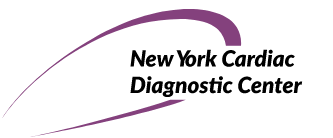High Cholesterol Treatment Manhattan NYC

High cholesterol, a condition also known as hyperlipidemia, can endanger your health and lead to heart disease or even a heart attack. Having high cholesterol means you’ve got high concentrations of low-density lipoprotein (or bad) cholesterol, commonly called LDL. But high cholesterol is a treatable condition. Statins are available and widely prescribed to effectively lower your bad cholesterol. But only diet and exercise can raise your good cholesterol and control your triglycerides. If you’re at risk, have your cholesterol levels checked regularly at the New York Cardiology, Manhattan center.
Cholesterol is a type of lipid or fat your body uses to function properly. The goal of health is to achieve a state of balance in your body to ensure it functions optimally. The moment any organ or system in your body slips out of balance, health issues become apparent. There are four cholesterol-related measurements that your New York cardiologist tracks:
Your total cholesterol count
The amount of high-density lipoprotein (HDL) cholesterol in your bloodstream
The amount of low-density lipoprotein (LDL) cholesterol present
Your triglyceride count
HDL is referred to as the good cholesterol while LDL is the bad cholesterol. Hyperlipidemia is a condition in which your body contains too much LDL cholesterol. In general, you want to raise your HDL count while reducing your LDL count. Hyperlipidemia increases the presence of fatty deposits in your arteries and can lead to blockages, resulting in a variety of coronary diseases. New York Cardiac Diagnostic Center
65 Broadway Suite 1806
New York, NY 10006
(212) 860-5404
Nearby Locations:
Financial District / Wall Street
World Trade Center | Two Bridges | Tribeca | Lower East Side
10007 | 10002 | 10003, 10009
Working Hours:
Monday: 8 am - 5 pm
Tuesday: 8 am - 5 pm
Wednesday: 8 am - 5 pm
Thursday: 8 am - 5 pm
Friday: 8 am - 5 pm
Saturday: Closed
Sunday: Closed
Payment: cash, check, credit cards.
The amount of high-density lipoprotein (HDL) cholesterol in your bloodstream
The amount of low-density lipoprotein (LDL) cholesterol present
Your triglyceride count
HDL is referred to as the good cholesterol while LDL is the bad cholesterol. Hyperlipidemia is a condition in which your body contains too much LDL cholesterol. In general, you want to raise your HDL count while reducing your LDL count. Hyperlipidemia increases the presence of fatty deposits in your arteries and can lead to blockages, resulting in a variety of coronary diseases. New York Cardiac Diagnostic Center
65 Broadway Suite 1806
New York, NY 10006
(212) 860-5404
Nearby Locations:
Financial District / Wall Street
World Trade Center | Two Bridges | Tribeca | Lower East Side
10007 | 10002 | 10003, 10009
Working Hours:
Monday: 8 am - 5 pm
Tuesday: 8 am - 5 pm
Wednesday: 8 am - 5 pm
Thursday: 8 am - 5 pm
Friday: 8 am - 5 pm
Saturday: Closed
Sunday: Closed
Payment: cash, check, credit cards.

